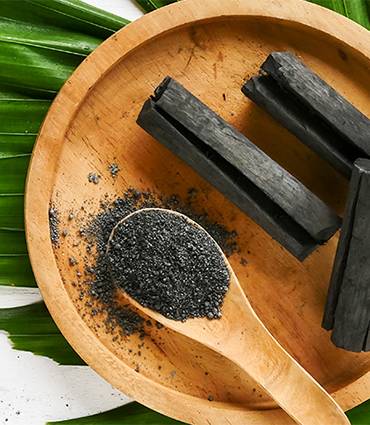- Home
- Our active ingredients
- Plants and fungi
- Vegetal carbon
Vegetal carbon
Number of products : 1
-
€25.20
Number of products : 1
-
Our active ingredients
- Fatty acids
- Algae
-
Others
- Glutamic acid
- Hyaluronic acid
- Lipoic acid
- Malic acid
- Arginine
- Astaxanthin
- Berberine
- Beta-carotene
- Betaine
- Butyrate
- Caffeine
- Carnitine
- Carnosine
- Choline
- Chondroitin sulphate
- Citicoline
- Citrate
- Citrulline
- Coenzyme Q10
- Collagen
- Creatine
- Cysteine
- Cystine
- Dimethylglycine
- Intrinsic factor
- Fibre
- FOS (fructooligosaccharides)
- Fucosyllactose
- GABA (gamma-aminobutyric acid)
- Royal jelly
- Glucosamine
- Glutamine
- Glutathione
- Glycine
- HMB (calcium β-hydroxy-β-methylbutyrate)
- Cod liver oil
- Shark liver
- Krill oil
- Inositol
- Inulin
- Lactoferrin
- Lutein
- Lycopene
- Lysine
- Melatonin
- Methionine
- MSM (methylsulphonylmethane)
- NAC (N-acetylcysteine)
- NADH (Nicotinamide Adenine Dinucleotide reduced form)
- Ornithine
- PABA (para-aminobenzoic acid)
- Apple pectin
- Pollen
- Polyphenols
- PQQ (pyrroloquinoline quinone disodium salt)
- Propolis
- Pterostilbene
- Quercetin
- Resveratrol
- Rutin
- Serine
- SOD (Superoxyde Dismutase)
- Taurine
- MCT (Medium chain triglyceride)
- Threonine
- Tryptophan
- Tyrosine
- Zeaxanthin
- PEA (Palmitoylethanolamide)
- D-mannose
- Postbiotic
- Enzymes
- Minerals and oligo-elements
-
Plants and fungi
- Acerola
- Milfoil
- Garlic
- Alchemilla
- Aloe vera
- Pineapple
- Angelica
- Aronia
- Artichoke
- Ashwagandha
- Astragale
- Hawthorn
- Elecampane
- Bacopa
- Bamboo tabashir
- Burdock
- Red beet
- Boldo
- Boswellia serrata
- Birch
- Broccoli
- Cocoa
- German chamomile
- Cinnamon
- Carob
- Caraway
- Blackcurrant
- Wheat ceramides
- Vegetal carbon
- Milk Thistle
- Chicory
- Quackgrass
- Chlorophyll
- Chrysanthellum
- Citrus
- Commiphora mukul
- Coriander
- Cranberry
- Turmeric
- Cypress
- Desmodium
- Echinacea
- Eleutherococcus
- Small-flowered fireweed
- Erysimum officinale
- Eschscholzia (California poppy)
- Fennel
- Fenugreek
- Butcher's broom
- Ash
- Fumitory
- Garcinia cambogia
- Chasteberry
- Ginger
- Ginkgo biloba
- Ginseng
- Pomegranate
- Griffonia
- Grindelia
- Guarana
- Marshmallow
- Gymnema sylvestre
- Witch-hazel
- Harpagophytum
- Hibiscus
- Hop
- Argan oil
- Sea buckthorn oil
- Evening primrose
- Borage oil
- Safflower oil
- Linseed oil
- Kudzu
- Red yeast rice
- Bird's-foot trefoil
- Maca
- Maitake
- Horse-chestnut
- Yerba Mate
- Melilotus officinalis
- Lemon balm
- Peppermint
- St. John's Wort
- Blueberry
- Olive
- Oregano
- Orthosiphon
- Nettle
- Fermented papaya
- Paprika
- Passion flower
- Wild Pansy
- Pumpkin seed
- Grapefruit seed
- Perilla
- Mouse-ear hawkweed
- Maritime pine
- Scots pine
- Dandelion
- Ribwort plantain
- Black pepper
- Polypodium leucotomos
- Horsetail
- Prune
- Blond Psyllium = Ispaghul
- Cherry peduncle
- Horseradish
- Grape
- Liquorice
- Meadowsweet
- Reishi
- Golden root
- Rosemary
- Saffron
- Salvia sclarea
- Willow
- Saw palmetto (Serenoa repens)
- Skullcap
- Shiitake
- Solidago
- Sophora japonica
- Tamarind
- White tea
- Green tea
- Thyme
- Red clover
- Tribulus terrestris
- Uña de gato (Uncaria tomentosa)
- Valerian
- Red vine
- Damiana
- Feverfew
- Cornflower
- Grapefruit
- Orange
- Mango (leaves)
-
Strains of flora
- Bifidobacterium animalis lactis BS01
- Bifidobacterium breve
- Bifidobacterium infantis BIO2
- Bifidobacterium longum BL03
- Lactobacillus acidophilus LA-3
- Lactobacillus helveticus Lafti® L10
- Lactobacillus plantarum BG112
- Lactobacillus reuteri DSM17648
- Lactobacillus reuteri LR92
- Lactobacillus rhamnosus GG
- Lactobacillus salivarius SP2
- Microbiota strains
- Streptococcus thermophilus SP4
- Lactobacillus casei LC03
- Vitamins
Vegetable carbon

Description
Vegetable coal, also known as activated carbon, is the result of the combustion of different types of wood (pine, birch, oak), then "activated" by injecting steam. The carbon then becomes porous and capable of absorbing almost 100 times its volume in gas. It works by capturing and retaining undesirable substances (bacteria, toxins, gases, etc.) on its surface and facilitating their removal.
Vegetable charcoal is a precious ally for the digestive system. It helps to reduce flatulence and bloating and to fight effectively against stomach aches and diarrhoea.
The benefits
Vegetable charcoal contributes to the normal functioning of the intestinal tract while promoting digestive comfort. It also helps to reduce excess flatulence.
In combination with a balanced diet, vegetable charcoal helps to control lipid metabolism, particularly that of cholesterol and triglycerides. Vegetable charcoal is thus a natural source that helps maintain the physiological balance of fats in the blood.
Scientific publications
Vegetable carbon is the object of more than 7 scientific publications.











